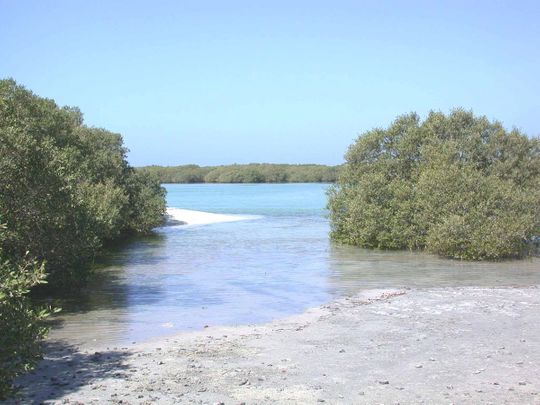[ad_1]
Abu Dhabi: Sheikh Hamdan bin Zayed Al Nahyan, the ruler’s representative in the Al Dhafra region and chairman of the Abu Dhabi Environment Agency (EAD), issued a statement about the Resolution No. 3 of 2023 for the Abu Dhabi Sanctuary Policy, in line with the vision and directives of His Highness Sheikh Mohamed bin Zayed Al Nahyan and aligned with 2023, was declared a sustainable years of development.
marine and terrestrial protected areas
The emirate’s marine protected areas account for 14% of the total marine biome, while terrestrial protected areas cover 17% of the total land area. The established protected nature reserves make up the Sheikh Zayed Protected Area Network.
The resolution provides for the publication of the Abu Dhabi Protected Areas Policy, provided that the EAD, in coordination with the relevant authorities, follows up and implements the policy mechanism according to its timetable.
expansion of protected areas
Dr Shaikha Salem Al Dhaheri, EAD Secretary General, said: “The release of the Protected Areas Policy in Abu Dhabi is the first of its kind in the UAE and aims to strengthen and expand the emirate’s network of protected areas to keep pace with rapid urbanization and development efforts, climate change and increasing pressures and demands on natural resources and sustainable development.”
Ahmed Al Hashemi, Executive Director of EAD’s Terrestrial and Marine Biodiversity Sector, said: “The policy on protected areas is based on international standards, which include principles of sustainable development, interactive management, community engagement, clear governance and scientific research to enrich decision-making. The policy The scope includes all types of current and future nature reserves, terrestrial and marine ecosystems including all national parks, wetlands and biosphere reserves.
Sustainable
“The policy also applies to areas located around the declared boundaries of nature reserves, as any activity or project in these specific areas may affect the environmental elements of the nature reserve. All projects and activities must be sustainable and must not have a negative impact and require prior EAD approval, such as submitting an environmental permit application and conducting necessary environmental studies.”
More than 15 government, semi-government and private agencies were involved in the development and review of the policy to ensure its alignment with each relevant national and local policy, plan and strategy. This reaffirms the important role of protected areas in enhancing quality of life, conserving natural resources and supporting emirate income, as well as enhancing biological resilience and adaptation to climate change.
Abu Dhabi’s protected areas offer promising investment opportunities that can contribute to the local economy, support the health and well-being of community members, and the emirate’s global leadership in environmental sustainability, such as economic investment opportunities, ecotourism, Scientific research and innovation.
promote sustainable development
Implementing this policy will help achieve several strategic objectives, such as protecting and managing biodiversity and habitats, and increasing resilience to climate change by keeping terrestrial and marine ecosystems in good shape.
In addition, sustainable development is promoted through comprehensive land use planning, encouraging the sustainable use of natural resources and promoting closeness to nature. Additionally, the policy will provide ecosystem services for a better life for all and connect community health to nature.
Culture, Ecotourism
Other goals include protecting cultural and natural heritage, providing opportunities for scientific research, innovation and education, and developing innovation and environmental investment systems. Likewise, the policy opens up more opportunities for ecotourism, preserving the aesthetic value offered by Abu Dhabi’s landmarks and landscapes on land and sea.
All of these will contribute positively to social and economic development due to effective planning of ecotourism. The policy also aims to develop effective planning, education and awareness initiatives, encourage public and private sector engagement and build social responsibility for biodiversity conservation through joint projects and partnerships.
[ad_2]
Source link



